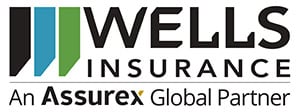5 Smart Ways to Save on Home and Auto Insurance This Year

If your home and auto insurance rates have gone up, you're not alone. With natural disasters and inflation affecting the market, many homeowners are searching for homeowners insurance discounts to lower their costs while maintaining proper coverage.
Whether you're buying your first home, growing your family, or focusing on your career, protecting your assets shouldn't mean overpaying. The good news? There are smart ways to save on insurance without cutting corners.
Here are five strategies to lower your premiums while keeping the right protection in place.
1. Bundle Policies to Maximize Homeowners Insurance Discounts
One of the easiest ways to unlock homeowners insurance discounts is by bundling your home and auto insurance policies with the same carrier. This not only simplifies your policies but often qualifies you for multi-policy discounts, leading to significant savings.
However, for coastal homeowners, bundling may be more challenging due to higher risks like hurricanes or flooding. That’s why it’s important to work with a Wells Insurance agent who can compare options across multiple carriers to find you the best deal in a market that may be naturally more limited.

Additional Ways to Save with Bundling:
- Look for carriers that include Wind & Hail coverage in your homeowners insurance package, reducing the need for costly standalone policies.
- Ask about umbrella policies that may bundle home, auto, and liability protection for bigger savings.
2. Choose Your Home Location, Design, and Renovation Updates Wisely
Where you live and how your home is built plays a huge role in determining your home insurance rate. Making strategic choices when buying, building, or renovating your home can qualify you for homeowners insurance discounts.
Factors That Can Lower Your Homeowners Insurance Costs:
🏡 Location Matters – Homes farther from the coast and in gated communities may receive better rates.
🏠 Roof Style & Materials – A hip-style roof resists wind damage better, making you potentially eligible for discounts.
🔒 Security & Safety Features – Installing a monitored security system and storm shutters can reduce premiums.
🛠 Recent Upgrades – Replacing your roof, HVAC, or water heater within the last 15 years could qualify for home insurance discounts.
Pro Tip: If your home is over 50 years old, it may be harder to qualify for discounts—so always check with your insurance agent before making big home improvements.
 Always check with your agent or carriers when making significant decisions about your home and keep them informed as you make changes.
Always check with your agent or carriers when making significant decisions about your home and keep them informed as you make changes.
3. Put Multiple Cars & Drivers on Your Policy
Many insurance companies offer multi-vehicle discounts when you insure more than one car on the same policy. If you have a spouse, partner, or children who live with you, adding them to your auto policy could lead to big savings.
Other Auto Insurance Discount Tips:
🚗 Safe Driving Discounts – Many carriers lower rates for drivers with 3-5 years of accident-free driving.
📲 Telematics Programs – Some insurers offer app-based tracking that rewards safe drivers with lower premiums.
🎓 Student & Young Driver Discounts – If you have a college student on your policy, they may qualify for discounts based on good grades or living away from home.

4. Focus On Proactive Claims Prevention
Avoiding Claims Keeps Your Premiums Lower: Insurance premiums are often influenced by your claims history. The fewer claims you make, the less likely your premiums will increase at renewal. By proactively preventing damage or loss (such as maintaining your roof, installing water leak detectors, or driving safely), you improve your chances of qualifying for homeowners insurance discounts
 This goes both ways. No claims helps increase the likelihood of discounts. On the flip-side, the more claims you have, the more your insurance rates are going to increase. If you have no claims over a significant period of time then you are more likely to be offered discounts and savings. So, if and when an incident occurs, it's best to check with your agent to see if it's worth filing the claim or covering the cost out of pocket.
This goes both ways. No claims helps increase the likelihood of discounts. On the flip-side, the more claims you have, the more your insurance rates are going to increase. If you have no claims over a significant period of time then you are more likely to be offered discounts and savings. So, if and when an incident occurs, it's best to check with your agent to see if it's worth filing the claim or covering the cost out of pocket.
Qualifying for Discounts: Many insurance carriers offer discounts for proactive safety measures, like installing security systems, smoke alarms, or telematics devices in your car. These steps show that you're minimizing risks, and insurers reward that behavior.
Minimizing Your Out-of-Pocket Costs: Even when insurance covers a claim, generally you have to pay a deductible. Preventing claims saves you from incurring these out-of-pocket expenses.
Think Before Filing Small Claims: Filing frequent claims, even small ones, can raise red flags for insurers and potentially make it harder to switch carriers or find affordable coverage in the future.
5. Raise Your Credit Score to Lower Your Insurance Rates
Here’s how you can improve your credit and potentially lower your insurance costs:
Pay Bills on Time – Consistently making on-time payments for credit cards, loans, and utilities can gradually boost your score.
Keep Credit Utilization Low – Try to use less than 30% of your total credit limit. High credit usage can signal financial instability to insurers.
Maintain Long-Term Credit Accounts – The length of your credit history matters. Keeping older accounts open can positively impact your score.
Limit Hard Credit Inquiries – Too many new credit applications in a short period can temporarily lower your score.
Important Note: When insurers check your credit to calculate your insurance score, it’s considered a soft inquiry, meaning it won’t affect your credit score like a traditional loan or credit card application would.
Even small improvements in your credit score can lead to noticeable savings on your home and auto insurance. If you’re not sure where to start, our team at Wells Insurance can help you explore all possible discounts and savings opportunities.

Start Saving on Homeowners Insurance Today!
Finding homeowners insurance discounts doesn’t have to be complicated. Whether you’re bundling coverage, updating your home, or proactively preventing claims, these small steps can lead to big savings. At Wells Insurance, we’re here to help you find the best discounts and ensure you’re getting the right coverage for your needs and budget.
Ready to explore how you can save this year? Contact us today for a personalized review of your policies and start saving on your home and auto insurance—so you can focus on what matters most to you.


